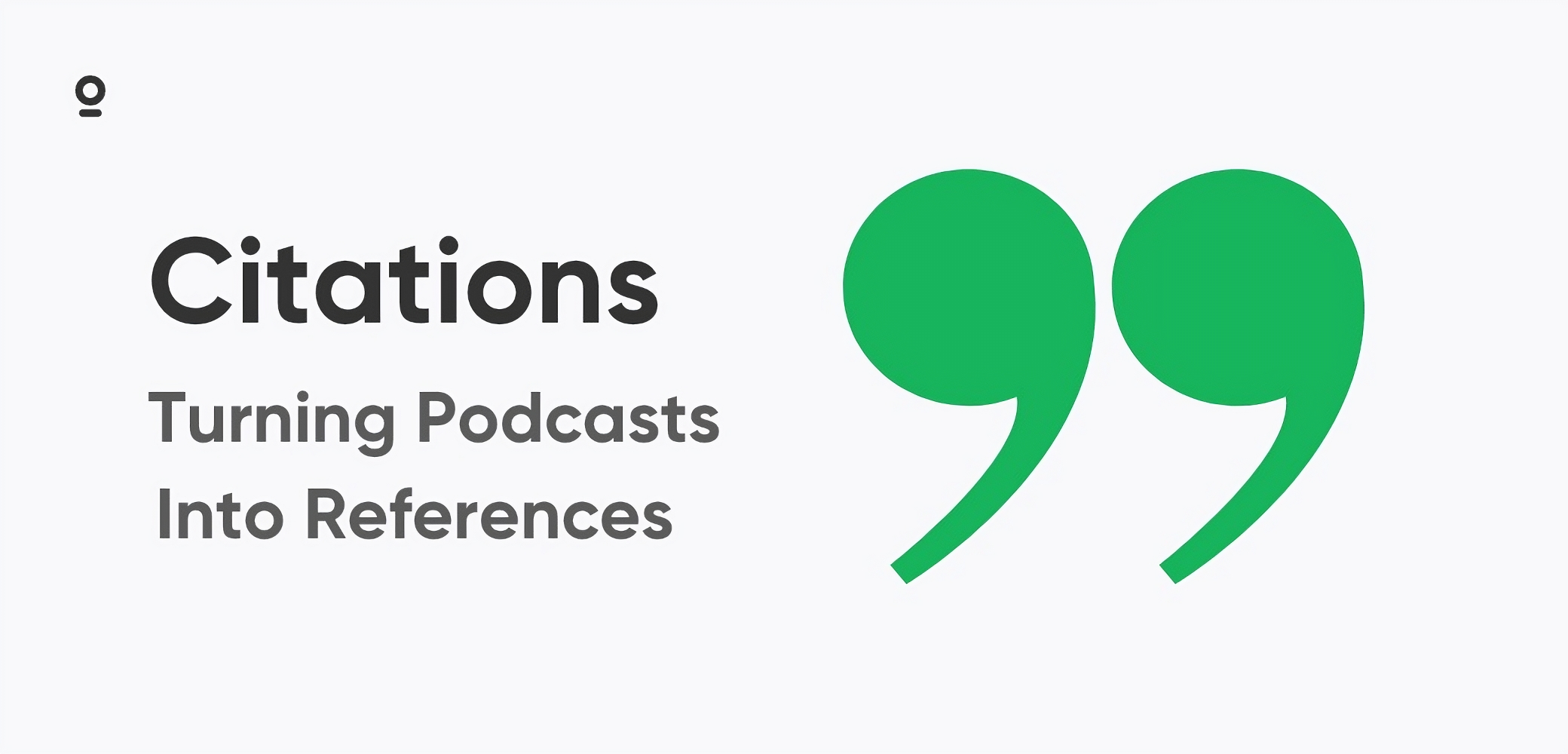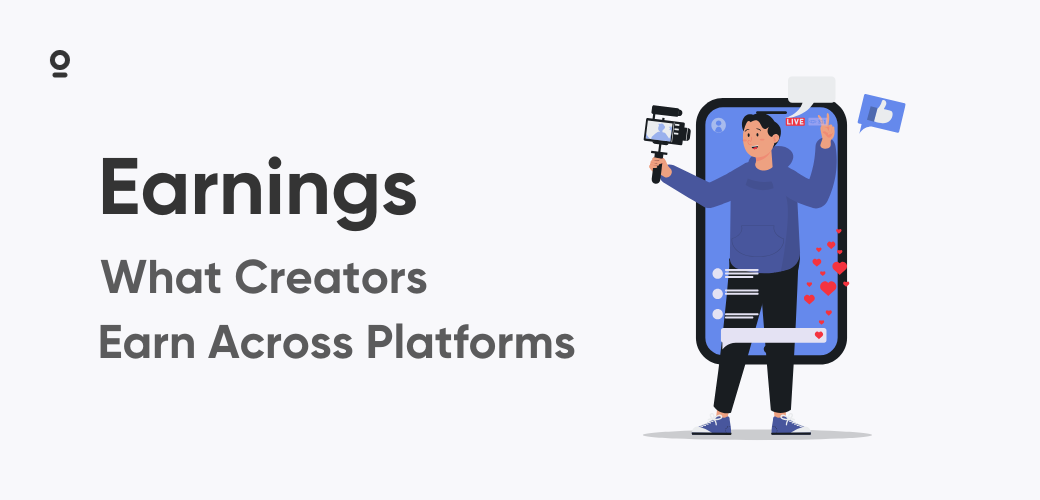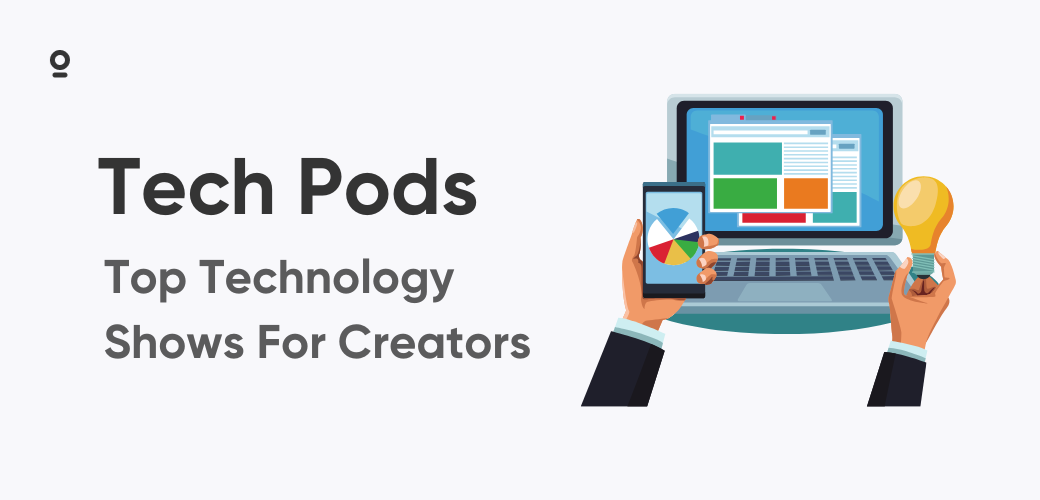If you're using podcasts in your research, you might be asking yourself: how do I actually cite this thing? Whether it's an interview with a Nobel Prize-winning economist or a first-person account of a historical event, podcasts are rich with information, and yes, they deserve a proper place in your bibliography.
Still, many students and researchers are unsure how to give citation to podcast content in academic papers. Citation rules don't always feel made for modern audio media, but the big style guides—APA, MLA, and Chicago—have updated their standards. With a little guidance, citing a podcast can be just as straightforward as citing a book or article.
Why Cite Podcasts at All?
Podcasts aren't just entertainment anymore. Many are produced by journalists, researchers, and subject-matter experts. They offer unique perspectives, real-time commentary, and first hand interviews, making them incredibly useful for academic writing.
Think of them like a hybrid between an expert interview and a media source. For example:
- Hidden Brain explains psychology through real-world stories and research.
- The Daily breaks down the biggest news stories, often with reporters and officials.
- Science Vs tests common beliefs against peer-reviewed studies.
These are sources you can reference, analyze, or quote, just like you would a TED Talk or article.
How to Give Citation to Podcast Sources (By Style)
Here's how to cite podcast episodes and series using the three most common academic styles: APA, MLA, and Chicago.
APA Style (7th Edition)
APA Style is used in psychology, education, and social sciences.
For a Podcast Episode: Format:
Host Lastname, Initials. (Host). (Year, Month Day). Title of episode (No. Episode number) [Audio podcast episode]. In Podcast Name. Production Company. URL
Example:
Koenig, S. (Host). (2014, October 3). The alibi (No. 1) [Audio podcast episode]. In Serial. WBEZ Chicago. https://serialpodcast.org
In-Text: (Koenig, 2014)
For a Podcast Series: Example:
Abumrad, J. (Host). (2002–present). Radiolab [Audio podcast]. WNYC Studios. https://www.wnycstudios.org/podcasts/radiolab
In-Text: (Abumrad, 2002–present)
MLA Style (9th Edition)
MLA Style is common in humanities, literature, and language arts.
For a Podcast Episode: Format:
Host Lastname, Firstname, host. "Episode Title." Podcast Name, season number, episode number, Publisher, Day Month Year. URL.
Example:
Koenig, Sarah, host. "The Alibi." Serial, season 1, episode 1, WBEZ Chicago, 3 Oct. 2014. https://serialpodcast.org
In-Text: (Koenig 00:15:30)
For a Podcast Series: Example:
Abumrad, Jad, host. Radiolab. WNYC, 2002– , www.wnycstudios.org/podcasts/radiolab
In-Text: (Abumrad)
Chicago Style (17th Edition – Notes and Bibliography)
Chicago Style is used in history, philosophy, and fine arts.
Footnote:
Sarah Koenig, "The Alibi," Serial, October 3, 2014, podcast audio, https://serialpodcast.org.
Bibliography:
Koenig, Sarah. "The Alibi." Serial. October 3, 2014. Podcast audio. https://serialpodcast.org.
Chicago allows for slight flexibility, including if information is incomplete.
What If Information Is Missing?
Academic podcast citation isn't always neat. Sometimes you'll run into:
- No episode title? Use a description in brackets, like [Interview with Dr. Jane Doe].
- No publication date? Use APA's (n.d.), or MLA's "Accessed" date. In Chicago, you can add an "accessed on" line at the end.
- No named host or guest? Start with the title of the episode or podcast instead.
- No URL? Cite the platform where you heard it, such as "Spotify" or "Apple Podcasts."
Remember, whether you're dealing with incomplete data or a fully detailed show description, the principles of how to give citation to podcast material remain the same: document what you do have as clearly as possible.
Example APA for Spotify:
Vedantam, S. (Host). (2022, March 15). The empathy gym [Audio podcast episode]. In Hidden Brain. NPR. Spotify.
Real Academic Use Cases
Students and scholars are using podcast citations more often, especially for:
- Primary source material: Analyzing first-person storytelling or journalistic investigation (Serial, The Moth).
- Expert quotes: Referencing social scientists or policy experts from interviews (Freakonomics, Planet Money).
- Timely commentary: Analyzing how media portrays current events (The Daily, Pod Save the People).
Podcasts are being cited in dissertations, peer-reviewed articles, and even textbooks. One research article in International Journal of Communication used APA citations to reference Crime Junkie episodes as part of a media analysis.
The Best Podcasts on Spotify (and Why They're Cited)
Here are some of the best podcasts on Spotify for academic use:
- Radiolab – Great for science, philosophy, and ethics.
- Science Vs – Compares myths and claims with real scientific research.
- Hidden Brain – Social psychology and behavior explained through storytelling.
- Freakonomics Radio – Economic ideas and behavioral science made accessible.
- The Daily – Current events with journalistic sourcing and analysis.
- History Extra – A history-focused podcast by BBC History Magazine.
- Short Talks from the Hill – University of Arkansas professors discuss their research.
- TED Talks Daily – Bite-sized insights from global experts, perfect for citations.
Truly, these are among the best podcasts on spotify for staying current on fresh research and engaging with innovative ideas. Citing them can add credibility to your paper and help you tap into public scholarship that's both timely and accessible.
Tips for Clean Podcast Citations
- Write down citation info while listening – Don't wait until later. Record episode title, host, date, and a timestamp for quotes.
- Use show transcripts when available – Many podcasts provide them. Great for accurate quoting.
- Timestamps are your friend – Use them like page numbers when quoting audio.
- Always name the format – [Audio podcast episode] or [Video podcast] helps your reader understand the medium.
Want to Create a Citable Podcast?
If you're not just citing podcasts—but also creating them—make sure you're producing quality audio that others can quote and cite.
Tools like Zencastr are built for remote podcast recording that meets academic standards. Our local recording technology captures each voice directly on the speaker's computer, so you avoid internet distortion. You'll get clean WAV files, perfect for archiving, quoting, or even transcription.
Just send your guest a browser link, hit record, and Zencastr does the rest—ideal for researchers conducting interviews, class projects, or fieldwork conversations.
Final Takeaway
Understanding how to give citation to podcast content is part of being a responsible, modern researcher. Podcasts offer fresh insight, direct voices, and real-time analysis. With citation rules now updated to include them, there's no reason to leave them out of your academic toolkit.
Just be sure to:
- Identify your style guide early
- Record complete citation info
- Use timestamps and format labels
- Choose high-quality podcasts that enhance your argument
And if you're making your own academic podcast, use a tool like Zencastr to ensure your audio is professional, clear, and worthy of a proper citation.
Ready to create something worth citing? Start recording with Zencastr today.
Zencastr is built to simplify podcasting—from interviews to finished episodes—so your ideas come through loud and clear.







